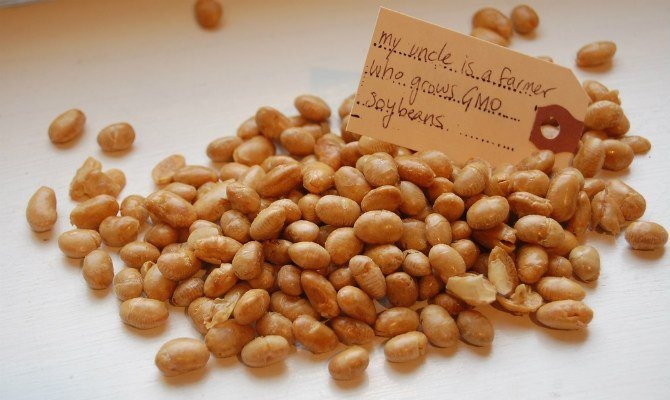Scientists Find 'Extreme Levels' Of The Herbicide Roundup In Our Food
Scientists have long theorized that chemicals found in herbicides like Roundup, a brand-name weed-killer, may be toxic. Scientists from the Arctic University of Norway have detected extreme levels of Monsanto-produced herbicide in GMO crops, especially soybeans. The study, which analyzed the chemical breakdowns of 31 different soy plants in Iowa, found high levels of Roundup on 70 percent of the studied plants.
In fact, scientists discovered 9 milligrams of Roundup per kilogram of soybeans — well over the 5.6 milligrams considered "extreme" by the Monsanto standards published in 1999.
Originally, Roundup was meant to kill weed pests that could stunt the growth of Monsanto crops, but a group of "superweeds" grew immune to the herbicide. As a result, more and more Roundup has to be used on crops for it to be effective. And that could prove toxic for humans. A recent study by professors Anthony Samsel and Stephanie Seneff of MIT has found that consuming large amounts of produce with Roundup residue (specifically the chemical and major herbicide ingredient glyphosate) can make us "vulnerable to the damaging effects of other chemicals and environmental toxins we encounter."
"This study demonstrated that Roundup Ready [GE]-soy may have high residue levels of glyphosate... and also that different agricultural practices may result in a markedly different nutritional composition of soybeans," the Nordic researchers concluded in their study. "Lack of data on pesticide residues in major crop plants is a serious gap of knowledge with potential consequences for human and animal health."
